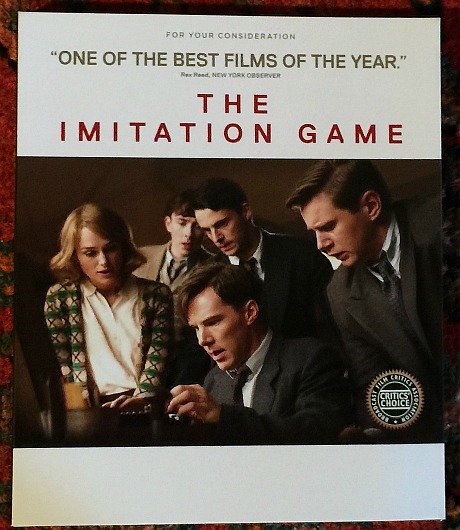Now that Morten Tyldum and Graham Moore‘s The Imitation Game (Weinstein Co., 11.28) has finally opened, perhaps those who’ve seen it could answer a few questions?

Screeners of The Weinstein Co’s Imitation Game and St. Vincent arrived today.
1. Does the film tell Alan Turing‘s story well and fully, and does it engage the viewer, etc.? Is it a sharp, well-ordered thing — a movie that knows what it’s doing and how to make it all cook and simmer just so, as I said in my original review — or could it use some other ingredient?
2. I wrote out of Telluride that while Game is “mostly a tale about the personal, bureaucratic and old-school morality issues that interfered with and ultimately shut down the beautiful mind of Enigma code-breaker Alan Turing, The Imitation Game nonetheless conveys the melancholy alone-ness and heartache that colored Turing’s personal life, and as such slams a solid triple.” Agree, differ, in-between?
3. The film nudges aside Turing’s secret life as gay man during World War II and the early ’50s, and in place of this focuses on a close platonic relationship between Turing and Keira Knightley‘s Joan Clarke — obviously a strategy embarked upon to appeal to mainstream straights. Did this aspect work for you or get in the way?
4. Agree or disagree: “This is a sad but fascinating tale about the lonely fate of an eccentric, exceptional genius-hero (exceptionally well-played by Benedict Cumberbatch‘s), and how 1940s and ’50s Britain gave him grief every step of the way. Over and over the powers-that-be (with the exception of Winston Churchill) and the sense of morality that existed in mid 20th Century England conspired to darken, confine and repress Turing’s life, and I must say that you find yourself wondering after an hour or so if there was anything to his amazing man’s life other than shadows and strife and the oppression of assholes.”
